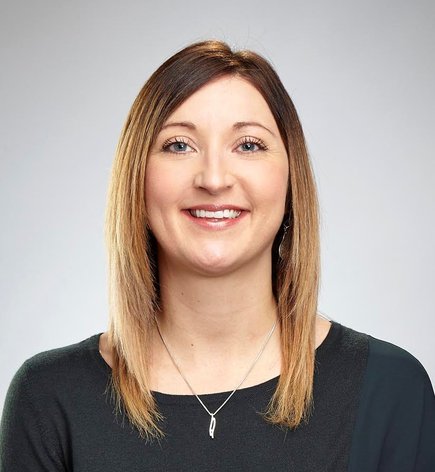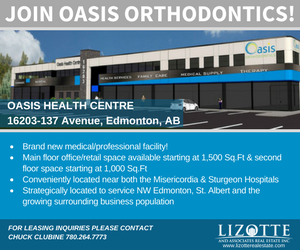When Emily Fong and Alex Wong (pictured above) started medical school, they quickly noticed the lack of diversity within their own class. Many of their classmates had parents or guardians that had university, graduate, or professional degrees and came from families with a high household income. This was concerning as it falls short of reflecting the diversity within the Canadian population.
Although a combination of economic, social and cultural factors come into play, Emily and Alex realized that one aspect they could target to solve this issue is to alleviate some of the financial barriers associated with the medical school application process. After consulting with the University of Toronto that had implemented their first free MCAT preparation program for students with demonstrated financial need, they brought the initiative to the University of Alberta.
Within a short period of time, Emily and Alex were able to garner support from the dean of admissions, partner with community organizations that work with low income neighborhoods. They formed strong alliances with the Indigenous office from the Division of Community Engagement and the Aboriginal Student Services Centre. Furthermore, Emily and Alex are currently leading a team of other medical students that will be involved in the logistics, outreach, and educational development of the program.

What Emily and Alex have identified is that financial concerns are not the only barrier, but also the lack of social capital available for low income students. Many students in medical school have had mentors in the field that have been strong role models and have guided them through this process. Thus, the MCAT preparation program will be paired with a mentorship component where students will be matched to faculty members and medical students, ideally coming from similar backgrounds.
This initiative is a huge undertaking, but has received growing support and recognition in the Edmonton community and beyond. They have done interviews and been featured on CBC, Metro, and CFWE Cree radio station to promote and expand outreach. Recently, they have also been contacted by students at the University of Ottawa to start up a similar initiative at their school.
The team was recently awarded outstanding poster at the 2nd Annual AMA Advocacy Night at the U of A. Everyone involved is proud to see this project develop from its conception and to see it grow. Our readers can look forward to hearing about the experiences of inaugural cohort this summer and the subsequent change it should bring to MD admissions.
Thank you Emily and Alex for your dedication toward equity, diversity and social accountability.
Banner photo credit: Melissa Fabrizio
Profile: Nicole Thompson, MD Candidate 2019

Prior to starting medical school, Nicole Thompson worked at Alberta Health Services as an Occupational Therapist. Since arriving at the Cumming School of Medicine at the University of Calgary, this passion has led to many improvements with the Calgary Medical Students’ Association, where she is VP Global Health. Most notably, Nicole has taken a leading role in inclusive curriculum development.
Early on, Nicole recognized her interest in pursuing a specialty within gynecology, and she has fostered many professional relationships based on her keen interest in improving care for her patients. This interest led her to develop the first transgender and gender diverse physical exam and education session at the Cumming School of Medicine. Nicole is a problem solver. When she sees a gap in training, she won’t merely acknowledge it; she fixes it and makes things happen.
In less than nine months, Nicole was able to gain support from the U of C Undergraduate Medical Education office to explore opportunities to improve the well man and well women physical exam training, and she developed the transgender and gender diverse physical exam and education session, which she piloted on February 5. The training was delivered to 27 medical students who would be starting clerkship the following week. All participants found this training invaluable. The transgender guest speakers and physicians were extremely informative and the training impeccably organized.
As you can imagine, the curriculum development didn’t happen overnight. Nicole connected with local physicians who work in transgender medicine in Calgary to get the ball rolling and gauge interest in the community. She organized supplementary transgender medicine teaching sessions and went through many iterations to develop the curriculum. She integrated herself within the community through an applied evidence-based medicine course at a transgender medicine clinic with Dr. Jablonski, and connected with many transgender community members to generate ideas for curriculum content.
The 2.5 hour physical exam teaching session was developed and sent to physician stakeholders, community member stakeholders and copyright review. The training included a didactic presentation on interviewing techniques, small group discussions facilitated by a physician and transgender community members, and experiential learning with simulators for physical exam maneuvers. The training covered continuity of care for transgender and non-binary patients and the social, medical and surgical alternatives for treatment.
It is evident that Nicole goes above and beyond to improve the system not only for her peers, but for her future patients as well. She is committed to the success of this project and has spent countless hours fostering relationships within the transgender community and with physicians. Nicole has also developed a thorough curriculum so that future medical students will benefit from this education session for years to come.
Nicole truly embodies the role of health advocate – she was recently awarded first place in the poster competition at the 2nd Annual Advocacy Day Symposium supported by the AMA. Thank you, Nicole, for being committed to the constant improvement of undergraduate medical education.
Nominate a medical student to be recognized in a Student Spotlight
If you would like to nominate a medical student to be recognized in a Student Spotlight, please submit a maximum of 500-word narrative to the AMA Committee on Student Affairs. We are looking for stories about medical students who are advocating for and leading change in their school, clinical environment or community. We want to recognize these students for their efforts and their ability to positively impact the health care system in Alberta. Together we can make a difference!
Please submit your nomination narrative and a picture to daphne.andrychuk@albertadoctors.org. If you submit a picture, please also include a signed AMA photo consent form for each person in the picture. Here's the form: AMA-consent-for-disclosure-of-personal-info.pdf


